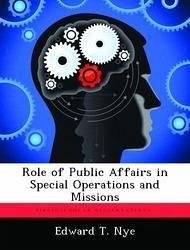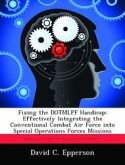This thesis sets out to answer the primary question, How do special operations public affairs officers achieve the required balance between the clear and dominant need for operational security before, during, and after an operation while maintaining the public affairs (PA) imperative of "Maximum Disclosure, Minimum Delay?" In short, can the special mission community move beyond the "no comment" or "I can neither confirm nor deny" approach and adopt a more sophisticated and effective PA plan. Along the way the thesis explored concepts, like "Just War," and brought to light the unique societal questions posed by the government's need for secret military units and capabilities and the problems these units pose for a free and open society. Four allied nations--Britain, Australia, New Zealand, and Canada--have all experienced public debate about their country's secret military units and have struggled to reevaluate their respective secrecy policies. In the aftermath of the terrorist attacks of 11 September 2001, the American public has not yet joined this debate. When it does, will the Department of Defense's PA policy of not discussing special operations missions withstand public and political scrutiny?
Hinweis: Dieser Artikel kann nur an eine deutsche Lieferadresse ausgeliefert werden.
Hinweis: Dieser Artikel kann nur an eine deutsche Lieferadresse ausgeliefert werden.








